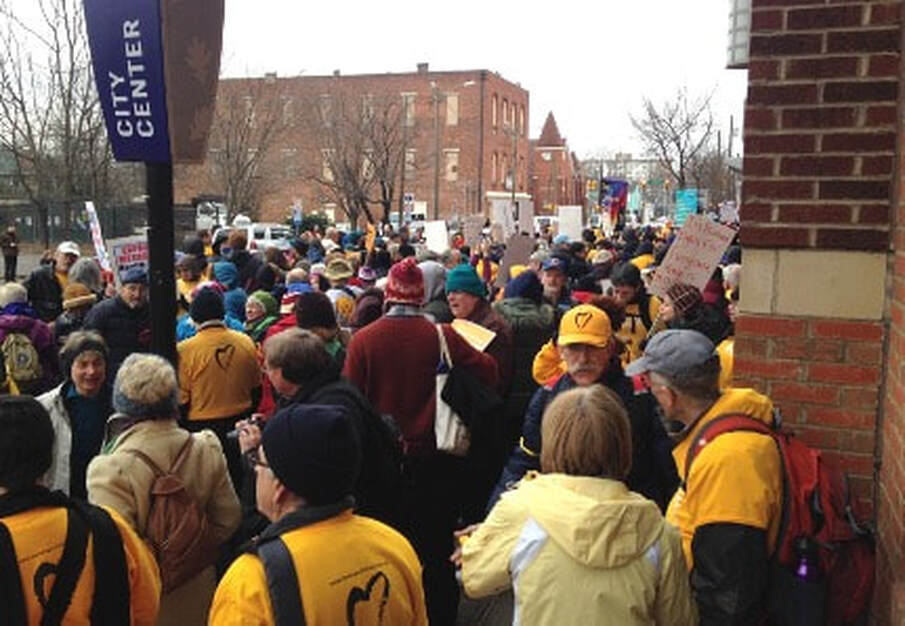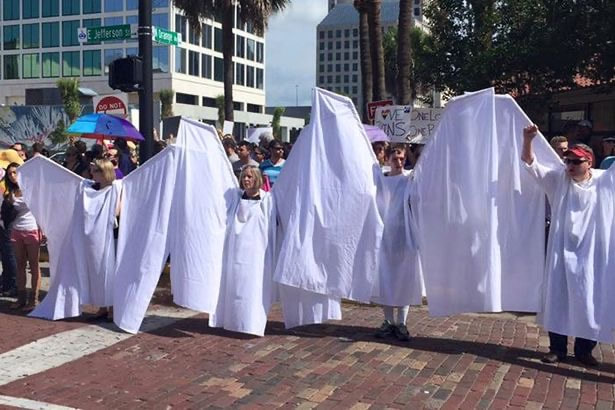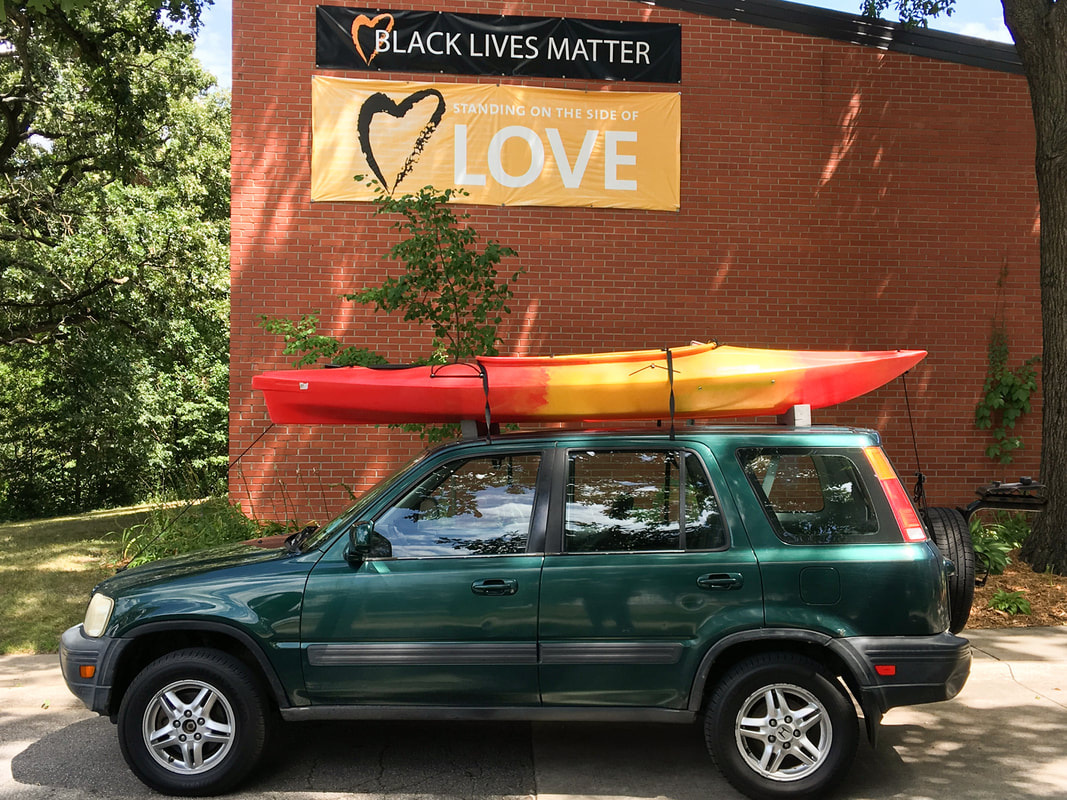We change the world through our acts of justice and compassion.
Creating justice requires both service and advocacy. Service responds to the immediate needs of people who are suffering (whether from hunger, poverty, oppression, or injustice). Advocacy responds to our society’s need for change in the structures and institutions of society. While the needs of members are a priority, a “public” church seeks to make a difference in the world—as opposed to a merely “private” church that serves only the needs of its members. But it’s usually not either/or, because hands-on community service helps people open their own lives to new meaning and purpose. Each congregation can find its own natural ways of reaching out to the wider community. Our UU faith has meaning only if we live it. We change the world through our acts of justice and compassion.
Photo: Members of the UU Church at Washington Crossing gather on February 8, 2014 with other Unitarian Universalists at the start of the Moral March on Raleigh, an early initiative of what is now the Poor People's Campaign. Participating with 85,000 other people of faith (1,500 of them UUs) to support voting rights and humane social policy created a lasting bond as Washington Crossing UUs began to understand what love and justice require. One of the greatest challenges is to re-frame “political” issues in a way that opens others to the lives of real people whose voices aren’t being heard.
Photo: General Assembly 2016, “angels” helped shield UUs who might wish to avoid exposure to toxic anti-LGBTQ+ protesters carrying signs with hurtful messages. As Lead Chaplain, I led the angel effort and the training of our UU counter-protestors.



